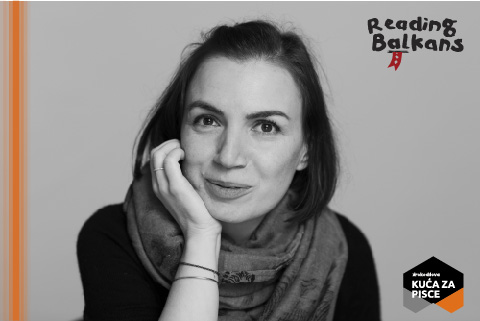
02 Jun Ekaterina Petrova – KROKODIL’S WRITER-IN-RESIDENCE IN THE MONTH OF june
In the month of June KROKODIL’s celebratory 100th Writer-In-Residence will be Ekaterina Petrova, who came to Belgrade thanks to the Reading Balkans project. Stay up to date with KROKODIL and join us on the 22nd of June on a separate event dedicated to this Bulgarian non-fiction writer, where we will, together with her, discuss her various literary accomplishments.
Ekaterina Petrova is a literary translator and nonfiction writer, working in both English and Bulgarian. She holds an MFA in Literary Translation from the University of Iowa, where she was awarded the Iowa Arts Fellowship. She also holds an MSc in European Politics and Governance from the London School of Economics and a BA in International Studies and German Studies from Macalester College in Saint Paul, Minnesota. Originally from Sofia, where she is currently based, Ekaterina has also spent time living, studying, and/or working in Kuwait, New York, Berlin, Cuba, Kosovo, Northern Ireland, and the south of France. Her nonfiction writing and literary translations have appeared in various Bulgarian and English-language publications, including Asymptote, Words Without Borders, European Literature Network, Reading in Translation, EuropeNow, Vagabond, Dnevnik, Capital, Balkan Travellers, and Balkan Insight. Her translation-in-progress of Iana Boukova’s novel Traveling in the Direction of the Shadow received a 2021 PEN/Heim Translation Fund Grant. A collection of Ekaterina’s essays/travelogues, originally written for the Turnupstuffer column in the Capital Light weekly magazine, is forthcoming with Janet 45 Publishing.
| ekaterinatpetrova.wordpress.com
Reading Balkans: Borders vs. Frontiers is a continuation of the Reading Balkans project supported by the Creative Europe 2017 program. This time the focus is on borders and cooperation with refugee writers – at a time when old wounds from the Balkan wars have not yet healed, our border issues have not yet been resolved and new policies of fear and nationalism are being built as refugees pass through our region – through our activities we want to work on dialogue, debate and a deeper understanding of our real problems.



Sorry, the comment form is closed at this time.